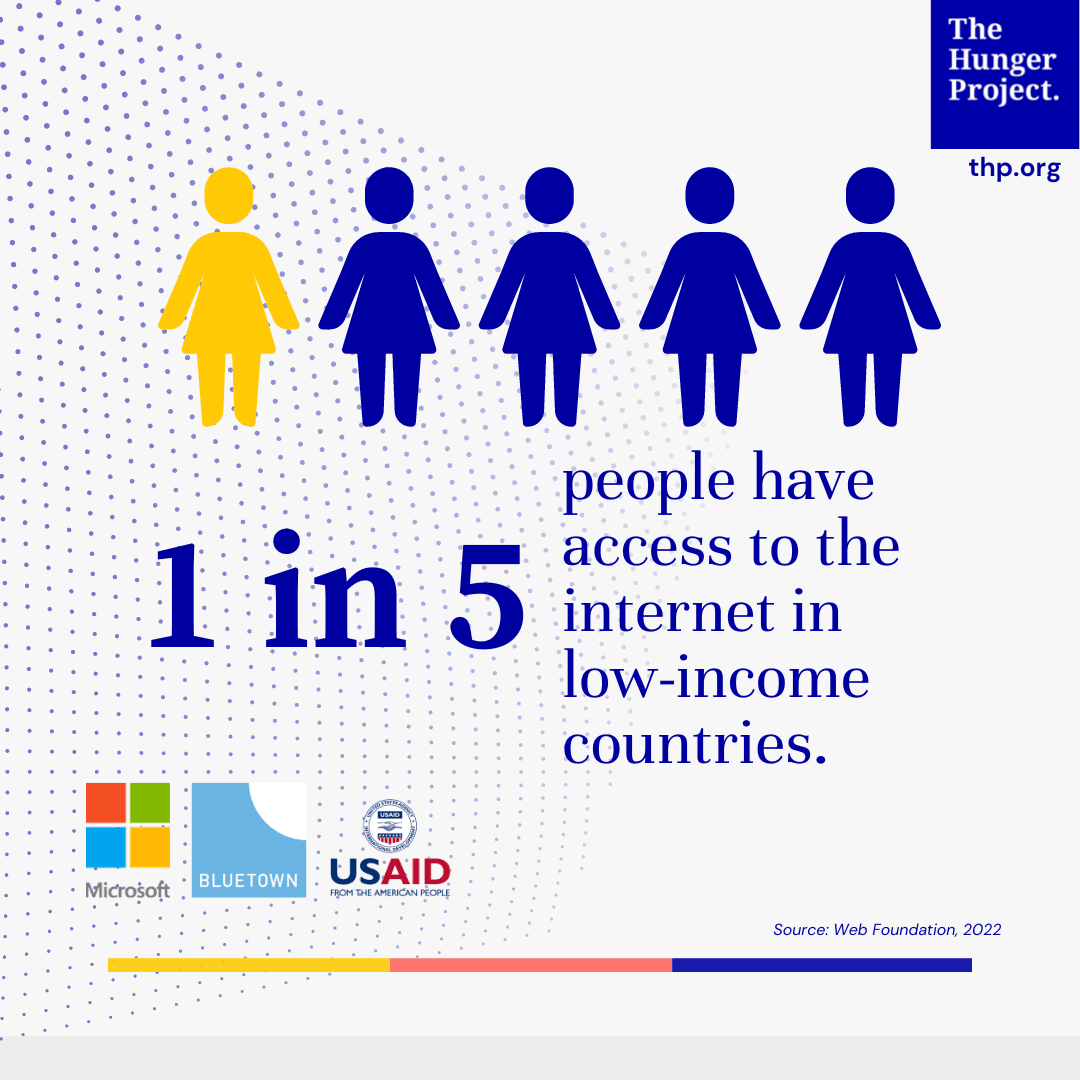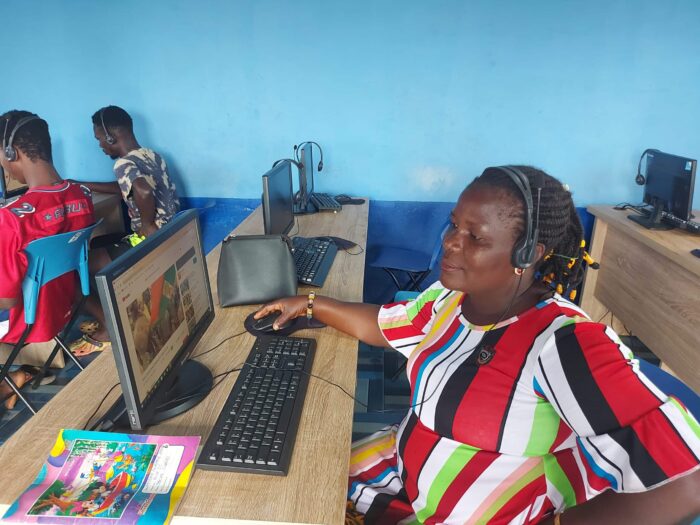Shaping your own future with meaningful access to technology.
Much of the world takes unrestricted access to the internet for granted. People use it everyday to connect with friends, learn new skills and share information. However, the digital divide between those with access and those without is widening at a time when the world is digitizing education, government services and commerce. In low-income countries, only one in five people is online (Web Foundation, 2022) compared to 90% of the population in high-income countries (World Bank, 2020).
The internet is so much more than simply a place to connect with friends. Digital technologies have become classroom extensions allowing people to access knowledge from anywhere around the world in an instant. Importantly, access to digital technology provides an opportunity for people living with hunger and poverty to participate in national and international discussions on policies and initiatives that impact their lives. Access can shift the power and the voice of our world’s most pressing issues to the grassroot-level — where it should be.

The Meaningful Access Project
We at The Hunger Project are dedicated to closing the digital divide through initiatives like the Meaningful Access Project in Ghana and Malawi. In collaboration with BLUETOWN, Microsoft and USAID, our new Women’s Meaningful Access Project brings high speed internet access to more women in rural Ghana, especially businesswomen and entrepreneurs like Stella.
Stella began her business over 20 years ago by selling goods at her local market. Over the years, Hunger Project programs like income-generating training and our Microfinance Program supported the growth of her business. But she knew she could be doing more to create a sustainable income through her culinary craft. When her community got high-speed internet through the Meaningful Access Project, Stella immediately leveraged it to expand and diversify her business.
Invest in Women.
Stella, entrepreneur and business owner in Ghana
By learning how to make traditional Jollof rice through YouTube, Stella doubled her profits. Her most popular customers are the children in the nearby school who excitedly await her arrival during lunch time. Access to reliable, affordable, high-speed internet has enabled Stella access opportunities and information that had previously been out of reach.
And she’s not alone. The Women’s Meaningful Access Project will connect over 6,000 women to vital resources that they utilize to create waves of lasting development in their communities. Leveraging the already-mobilized communities at the heart of The Hunger Project’s Epicenter Strategy, local leaders have been trained as digital operators to encourage other women to participate in the digital community and create micro-entrepreneurial opportunities.
The potential to create positive change is limitless for women like Stella…as long as we prioritize opportunities for access to digital technologies. As the world is digitizing, we call upon governments and private companies to invest in infrastructure in rural areas and promote access to digital tools and online resources by vulnerable communities such as women, girls and people living with disabilities.

